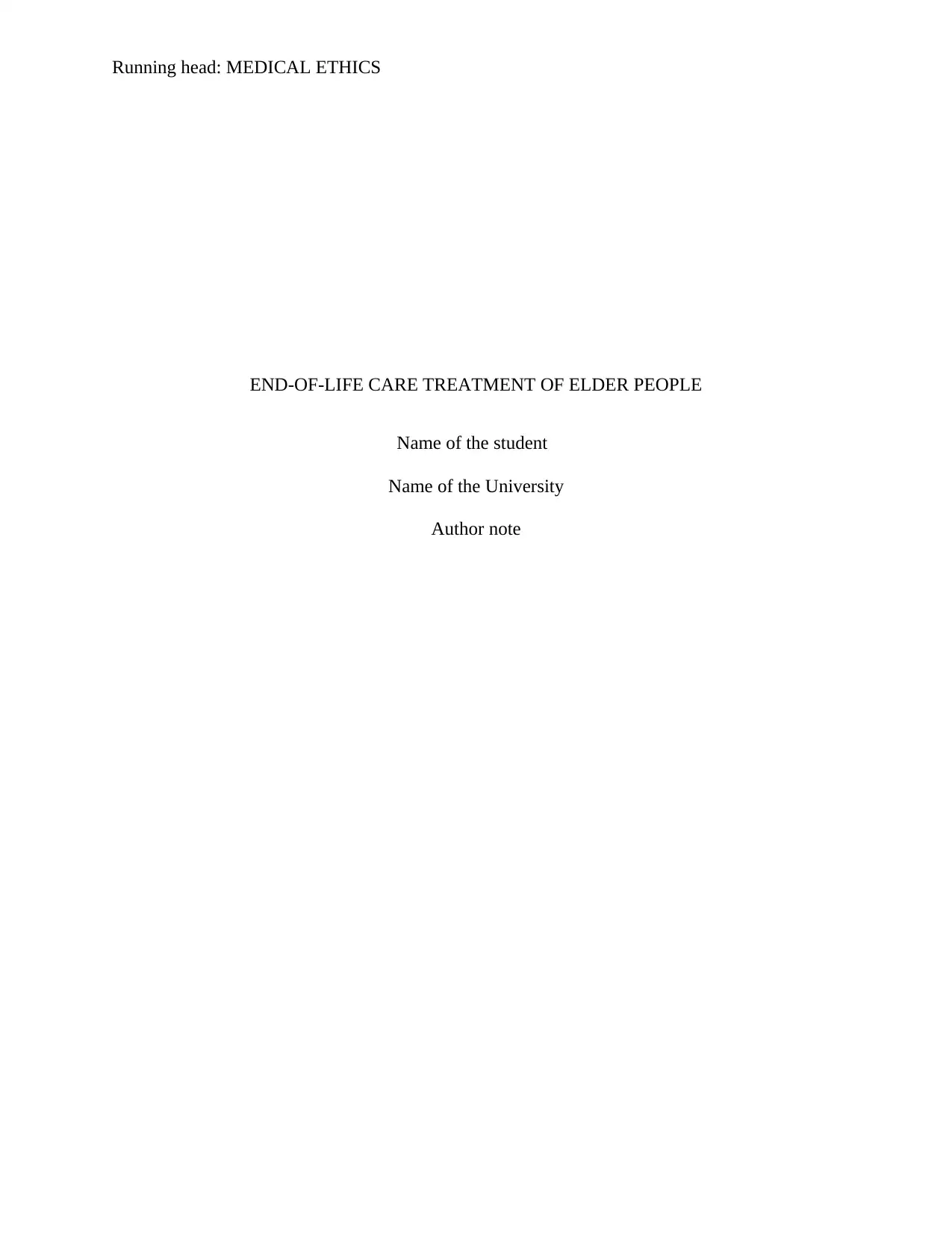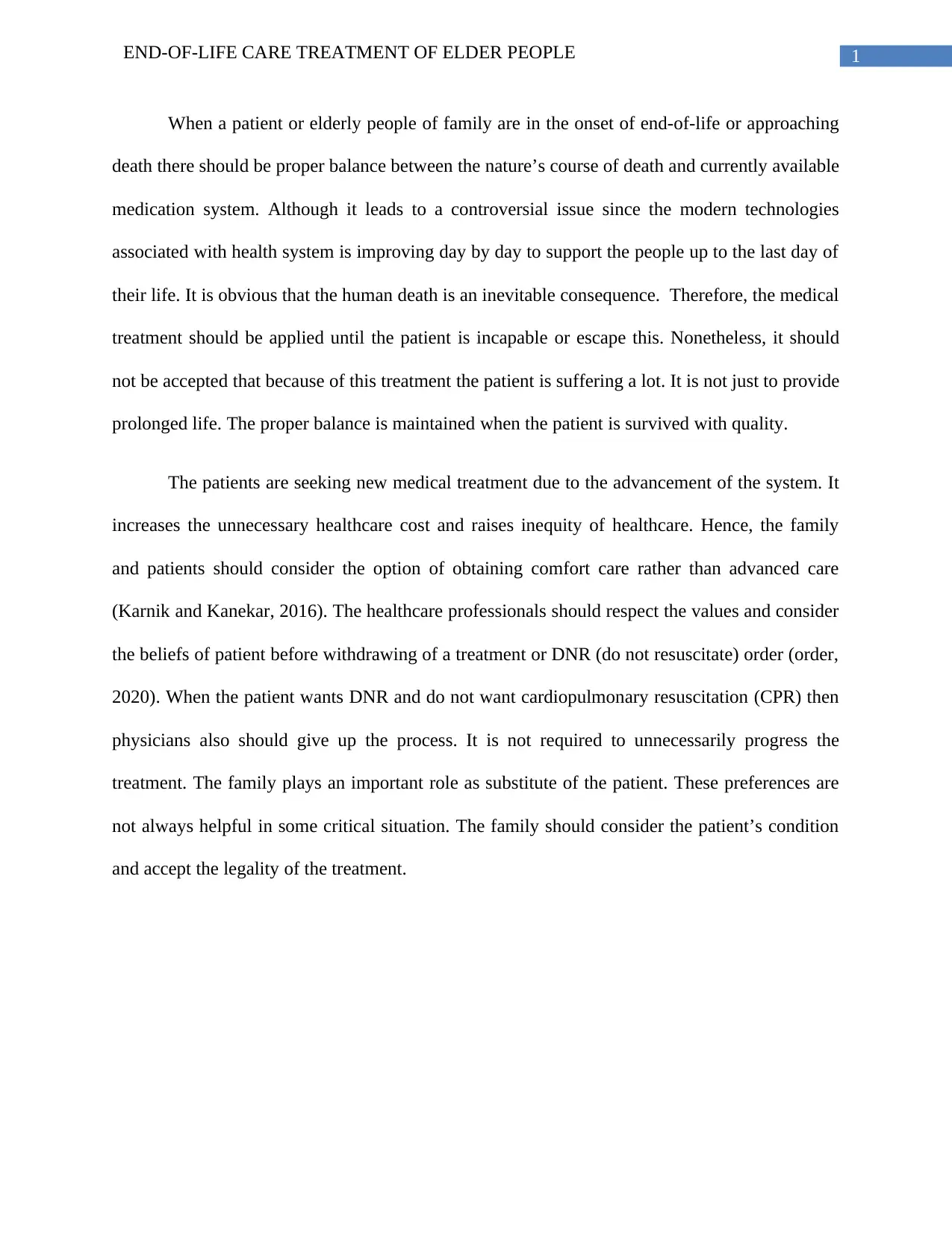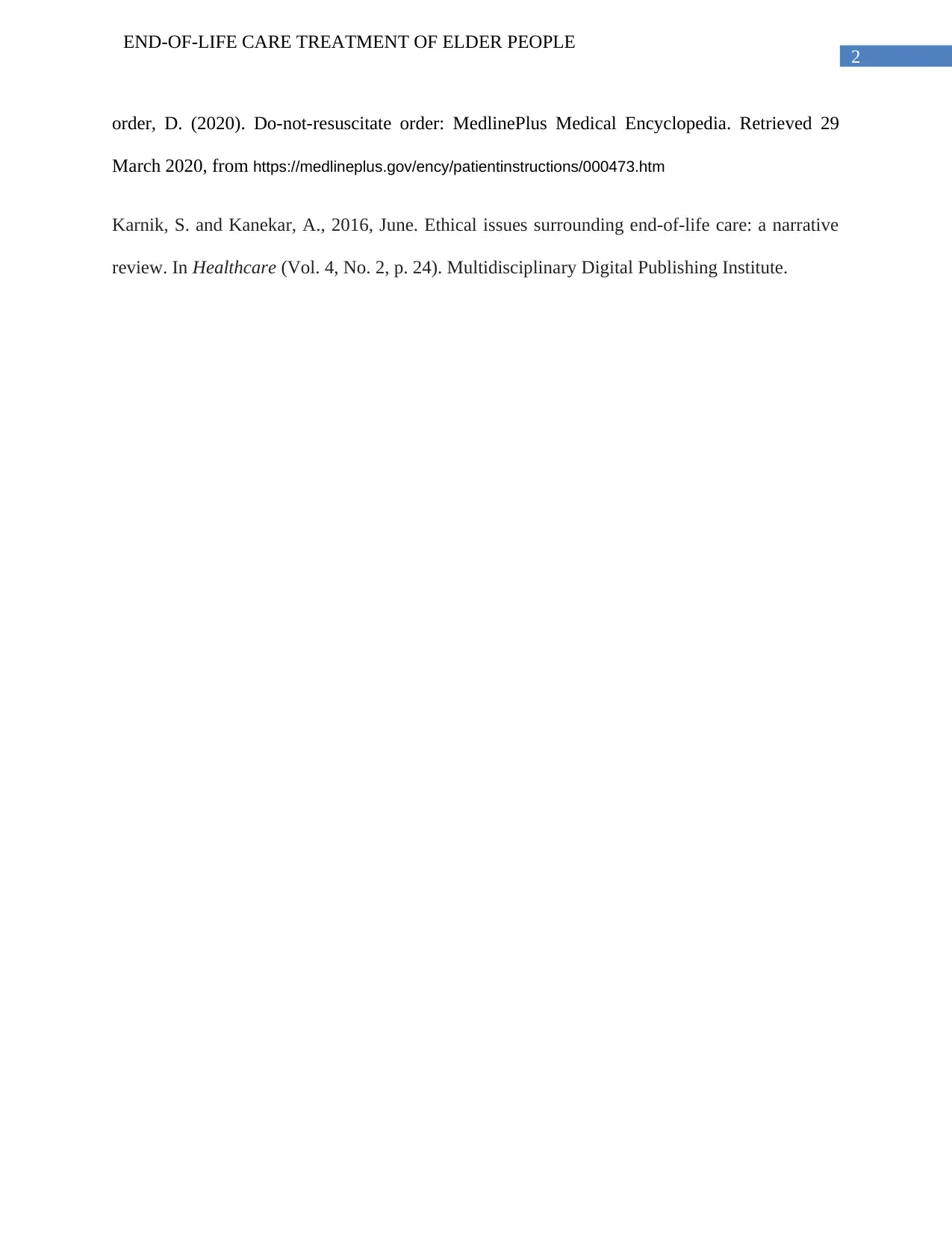Ethical Considerations and Treatment in End-of-Life Care
VerifiedAdded on 2022/09/07
|3
|411
|21
Report
AI Summary
This report delves into the ethical complexities surrounding end-of-life care, particularly for the elderly. It emphasizes the importance of balancing medical interventions with the natural course of death and the patient's quality of life. The report highlights the significance of respecting patient autonomy, including the implementation of Do-Not-Resuscitate (DNR) orders when requested. It also acknowledges the role of family members in decision-making, while cautioning against the potential for conflicts and the need to consider the patient's overall condition. The report draws upon existing literature to explore the ethical dilemmas, healthcare costs, and the shift towards comfort care over aggressive treatment. It underscores the need for healthcare professionals to consider the patient's values and beliefs when making decisions regarding end-of-life care.
1 out of 3










![[object Object]](/_next/static/media/star-bottom.7253800d.svg)